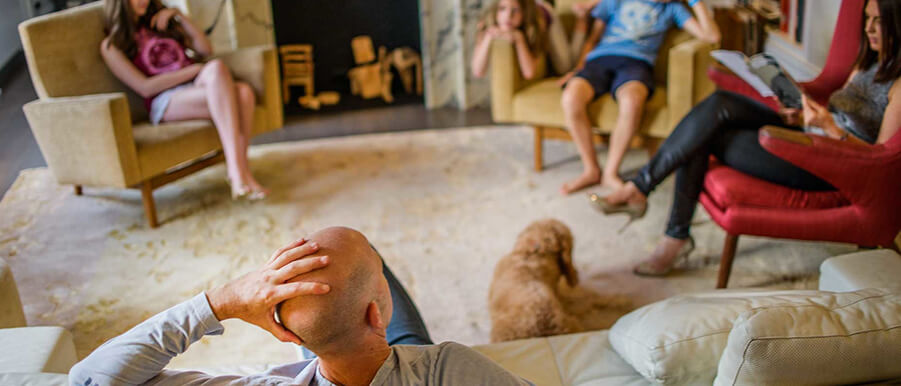 11 Feb 2021
11 Feb 2021
BY: admin
LGBTQ
My Child is Trans or Non Bianary, How Can I Support Them?
How Talk Therapy Can Be Helpful for Your LGBTQ Teen
If your child has recently come out to you as being transgender or non-binary, you might be panicking and wondering how to support them through the next chapter of their life. Coming out at any age takes tremendous courage, and your child might still be feeling anxious and afraid about what this realization means for them.
Seeking out ways to support your child through this time already shows how much you love them. Although you may not know what to say or do in this moment, know that the most valuable thing you can offer your child is love and acceptance. To help you continue to provide as much support as possible, we have put together several therapist-approved strategies.
Learn About Gender Identity
Gender and sex are not the same thing, and this is often the biggest misconception and point of confusion for parents whose child has just come out. Sex is a biological fact, but gender is a social construct that is generally comprised as “masculine” or “feminine.” When your child does not feel like the gender they were assigned at birth, they may decide that they want to live as the opposite, in which case they would be transgender. Non-binary gender, on the other hand, encompasses a wide range of gender expressions that may nor may not relate to someone’s sex.
You can learn more about gender, transgender and non-binary experiences through sites like the National Center for Trans Equality, the Trans Youth Equality Foundation, and the American Psychological Association.
Ask Questions
Rather than ask your child, “Why do you want to be ____?”, you can speak with them about their feelings and thoughts. This process can help you understand them while allowing them to vocalize emotions they have likely been struggling with alone for a long time. Questions are only questions; expressing a desire to understand your child’s feelings, rather than putting them in a defensive position, shows you care about their mental health and experience as a transgender or non-binary person.
Accept the Answers Your Child Doesn’t Have Yet
Just because your child comes out does not mean they fully understand what they want to do next. Transitioning takes time, and the timeline is different for everyone. Ask your child what steps they’d like to take next. Do they have a name they would like to go by? Would they like to start wearing clothes that are better aligned with their identity? They might not fully know what they want to do yet, and that’s okay. Both of you can move forward at your own pace. There is no rush.
Allow Yourself to Accept and Even Grieve
You can accept your child unconditionally and still feel a loss over who you thought they were. Your hopes and dreams for their future are different, and it’s natural to feel confusion and even pain about their transition. Siblings will also need time to understand and adjust to your child’s new identity. But no matter what their sexuality or gender, your child is still the same person. Their incredible personality, sense of humor, aspirations and strengths do not change based on who they love or what gender they identify as.
However, it is still important to acknowledge the importance of their decision to come out. Being transgender or non-binary doesn’t define a person, but it is a large part of who they are and how they see themselves and their place in the world.
Get Help Together
Counseling for LGBTQ can help you support your child while addressing any difficult thoughts, feelings or fears you have about their transition. Children can work with a counselor to address their changing needs and mental health including problems common among transgender and non-binary youth. We also offer family counseling that helps the entire family adjust to the change and be as supportive and accepting as possible.
Contact Caring Heart Counseling to learn more or book your appointment today!
 24 Aug 2020
24 Aug 2020
BY: admin
Relationships / Virtual Counseling
Elementary School Anxiety and How to Set Yourself up for Success
Elementary School Anxiety and How to Set Yourself up for Success
Elementary school is one of the most exciting times of childhood; your child may be headed into Kindergarten, or they could be gearing up for another year filled with its own challenges, triumphs and memorable moments. Watching your child grow can be bittersweet, and with the coronavirus pandemic underway, sending your elementary school student back to school can be downright terrifying.
Anxiety is a normal and often healthy part of parenthood; it causes you to step back, pay closer attention and be proactive. But it can also hinder your ability to promote healthy independence and resilience in your child. To combat the anxiety and stress of another school year, here are some tips to keep in mind.
Put Safety First
Schools that are reopening for the new year will likely have safety measures in place. Your child may be required to wear a face mask during the day, which could be met with some discomfort or resistance. Talk about the importance of wearing a mask; tell your child they have an important role to play, and wearing a mask helps them protect themselves as well as their teachers and friends.
Practice wearing a mask in extended durations before school resumes, and teach your child how to properly wash their hands and apply hand sanitizer. To make the new safety measures a little less scary, get your child involved by letting them pick out a mask with a fun design.
Placing masks on their favorite stuffed animals can be a good way to introduce the concept and make it more approachable for a child.
Separation Anxiety
Parents and students can both experience anxiety when it’s time to go back to school. Combat this as early as possible by building excitement around the first day and upcoming year. Listen to your child’s worries, and offer reassurance. Rather than saying, “Don’t be worried,” tell them that it’s okay to be nervous, and everyone feels afraid of new things sometimes.
As a parent, your anxiety may be palpable to your child, which makes coping with it on your own time imperative. You don’t want to transfer any fears into your elementary schooler; therapy is one way to work through your fears, but speaking with your partner, journaling and talking with parents can help, too.
No Friends
Isolation is difficult for anyone, but children are impacted tenfold by their social engagement at school. Your child may have been placed in a new classroom this year and not be with any of their friends; you may have images of them eating alone, getting picked last for gym or recess and standing on the sidelines. This is a natural part of growing up that, although difficult, is important to your child’s growth.
Not having any friends in class might be scary at first, but it’s a chance for them to develop social skills and learn how to cope with discomfort. Read books about making new friends, roleplay with toys and assure your child they can still connect with their old friends online and outside of the classroom.
Coronavirus Closures
We are not sure how the virus will impact the new school year; it’s best to speak with your child now and let them know things may change throughout the year. Plan ahead by talking about closures, what they mean and how your child will have to learn if the school does need to shut down temporarily. Let them know that school closing doesn’t mean they can’t talk to their friends or teachers.
As a parent, the best thing you can do is try to find as much flexibility as possible. In addition to looking after your own mental health, it helps to come up with a plan for childcare and education in the event of another closure. You may never have to use it, but thinking about potential solutions now can help lower anxiety by reducing “what ifs.”
We offer both virtual and in-person counseling for parents and children that can make the transition back to school easier. Click here to get in touch with one of our therapists.
 17 Jul 2020
17 Jul 2020
BY: admin
Relationships
How to Talk to Your Children About Racism
How to Talk to Your Children About Racism
After the murder of George Floyd and the 2020 Black Lives Matter protests, all of us have reevaluated our own beliefs and become more aware of how deeply racism still impacts people today. Society is changing, and for many, America feels unstable and, as a result, unsafe.
Parents want nothing more than to give their children a peaceful, prosperous upbringing, but that feels difficult now with social justice and political conversations entering every sphere of life.
Talking to your children about racism is important for several reasons; for small children, it helps combat the development of implicit biases many of us grew up with and had to unlearn. For older children, it gives them a safe environment to ask questions, explore their thoughts and be guided toward an educated worldview.
It’s okay not to have all the answers, but that is not a reason to avoid the topic. By addressing racism at home, you can help your children feel understood, be more inclusive and grow up to be people who are able to stand up for equality and combat racial injustice.
When does racism begin?
Babies become aware of physical differences such as skin color as early as 6 months old. By age 5, children begin to show early signs of racial bias and preferences. This can evolve through a number of ways, including subconscious social conditioning in schools and predominant exposure to only one particular race in the media.
Children are far more aware of racism than parents think; it’s a part of society that they are exposed to at an early age. The goal for parents today should be to teach their kids how to combat racism by modeling and promoting inclusivity and celebrating diversity.
Children Under 5
For preschoolers and kindergarteners, it’s important to adapt to their emerging tendency of noticing differences. As they get older and more vocal, toddlers and young children are likely to ask questions or make observations. The old traditional response to this natural curiosity was to chastise or shush children whenever they pointed out a racial difference.
Although parents likely thought this was disapproving of the behavior, it actually creates a negative connotation with racial openness and curiosity. Rather than seeing diversity as something interesting, children receive the message that it is taboo and different equals bad.
You can create a more inclusive environment at home by introducing your child to more diverse toys and media. For example, buy a White, Black and brown baby doll for them to play with. Watch movies and read children’s books that feature Black, Asian and Hispanic main characters. When they ask questions, provide answers and listen to their thoughts. Focus on fairness and sending the message that we are all wonderful and equal no matter what we look like.
Elementary and Middleschoolers
Children in this age group are likely already familiar with the concept of racism. They may already have heard about it from peers, seen it on news or read headlines online. The internet can be a valuable tool, but it can also expose children to biased, sensitive and even graphic material that they are not yet ready to confront. Rather than being able to analyze and decide whether it’s valuable to them, children tend to perceive everything they read online as fact.
Use the web together to explore various media that discuss racism at an appropriate level. BrainPop is an educational platform that offers free resources to promote an antiracist education. Materials are divided by age and cover both historical events and figures such as Harriet Tubman, Jim Crow, Martin Luther King Jr., slavery and the Black Lives Matter movement.
Teens
Teenagers today are impassioned and politically aligned far earlier than their parents and grandparents were. Talk to them about their views, listen to their concerns and find ways to help them be a safe and peaceful activist. You should also tap into their emotions and ask them how they’ve been handling these events and the feelings they stir up. Anxiety, depression, frustration and fear are all normal and natural responses, but they need to be addressed with care.
Educate Yourself First
You may not even know how to start talking about racism because you have your own questions. The subject is so emotionally charged today that many people want to avoid it altogether. There is no perfect answer or cut-and-dry solution for discussing racism at home, but the best conversations come from a position of education and intellectual curiosity.
Start by reading up on the history of racism yourself. Read material by Black and other minority authors. And address your own stress, frustration and anxiety about the state of the world with people you trust. For some, the best source is a licensed therapist who knows how to guide conversations about difficult or challenging topics.
If you would like personal tips on how to talk to your children about racism, or if you need a safe space to confront your own struggles and concerns, we’re here for you. Contact Caring Heart Counseling today by clicking the button below.
 09 Apr 2020
09 Apr 2020
BY: admin
Counseling
How to Talk to Your Children About the Coronavirus
How to Talk to Your Children About the Coronavirus
Talking to children about certain subjects is always a challenge, but for most cases, we have time to plan and prepare. The new coronavirus has thrown everything for a loop, and many parents are left grappling with all the sudden changes. During this hectic and uncertain period, it can be easy to get so caught up in our own anxieties that we forget to include our children.
Talking to your children about the coronavirus can help ease their anxiety, reduce stress and learn how to protect their own health. We’ve put together a few suggestions on how you can teach your children about COVID-19.
Don’t Hide Reality
Although you should disclose details that are appropriate for your child’s age level, even toddlers can understand there has been a disruption to the norm, and it’s not wrong to talk to them about it. In fact, introducing children to the topic early can help them start to build resilience. This is an opportunity for your child to understand there are things in life beyond their control, but they can adapt with support rather than cope with anxiety.
Avoiding a scary subject like the virus can actually heighten children’s concerns. After all, if their parents aren’t talking about it, it must be really bad, right? They are bound to see headlines on the TV or phone, overhear adults talking about COVID-19 and draw their own conclusions.
Help dispel worry by talking openly about the virus. You can find the best information on the Centers for Disease Control and Prevention website. There is also a free video by education site BrainPop that you can watch together and discuss.
Stay on Their Level
Children should be spoken to in a manner that is easy for them to understand. Keeping language developmentally appropriate can help prevent misunderstandings and greater confusion. A small child between the ages of 2 and 4 will likely be fine with a straightforward, two-sentence explanation such as, “A lot of people outside are getting sick right now, so we’re going to stay inside to keep ourselves healthy while the doctors do their jobs.”
Older children will likely prompt for greater detail; those who use the internet have likely come across articles and done some of their own reading already. Answer their questions as they come, but keep a positive mindset. Focus more on what you and your family can do, like self-isolating and washing your hands regularly. Anxiety stems from uncertainty and feelings of powerlessness; shifting your child’s attention to their ability to protect themselves and others will help alleviate discomfort.
Reassure Repeatedly
Let your child know that the coronavirus seems to affect children in less severe ways, and that if they practice good hygiene, they will most likely not catch it. Remind children that they have the ability to protect themselves and their family; talk about the right way to wash your hands, which is 20 seconds. A helpful way to remember is to sing the “Happy Birthday” song while they lather with soap and water.
Stick to a Routine
It can be helpful for both you and your children to follow your usual schedule as closely as possible; it should be business as usual when it comes to waking up, bedtime and getting dressed. Maintaining this semblance of normalcy will bring comfort and security to children as they adapt to the many changes going on around them.
Enjoy Family Time
While sticking with a routine, let you kids know that this is also a great opportunity to have some extra family time and to do some things that you typically wouldn’t be of a mind to do or wouldn’t feel like you had the time for. Create an extra movie/pizza night, game night, book night, or outdoor games challenge. Do some Go Noodle dances together. Sing karaoke! Have a Dude Perfect shot or bottle-flipping challenge. One family we know of created a tik tok dance together. There are so many ways to take advantage of this time.
A good combination of all the above will make this an easier time for your children, you as parents, and for all of you as a family.
At Caring Heart Counseling, we want to be here for you and your family during this challenging time. We offer virtual counseling with our therapists that you can access right from the comfort of your own home. To learn more, contact us today.

